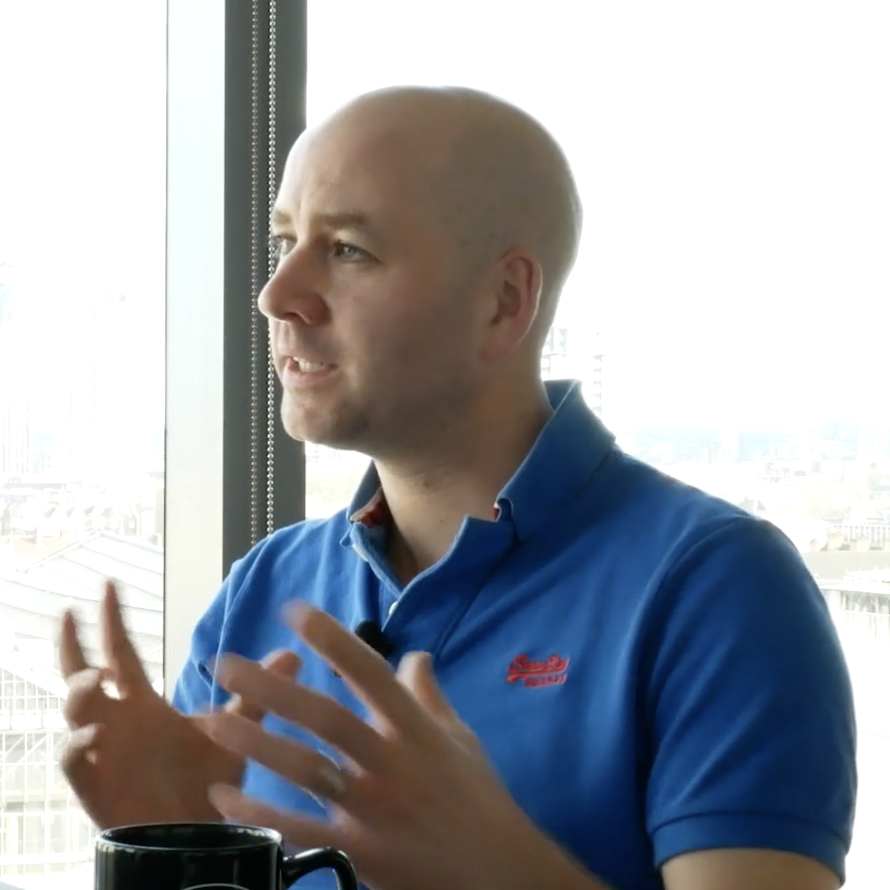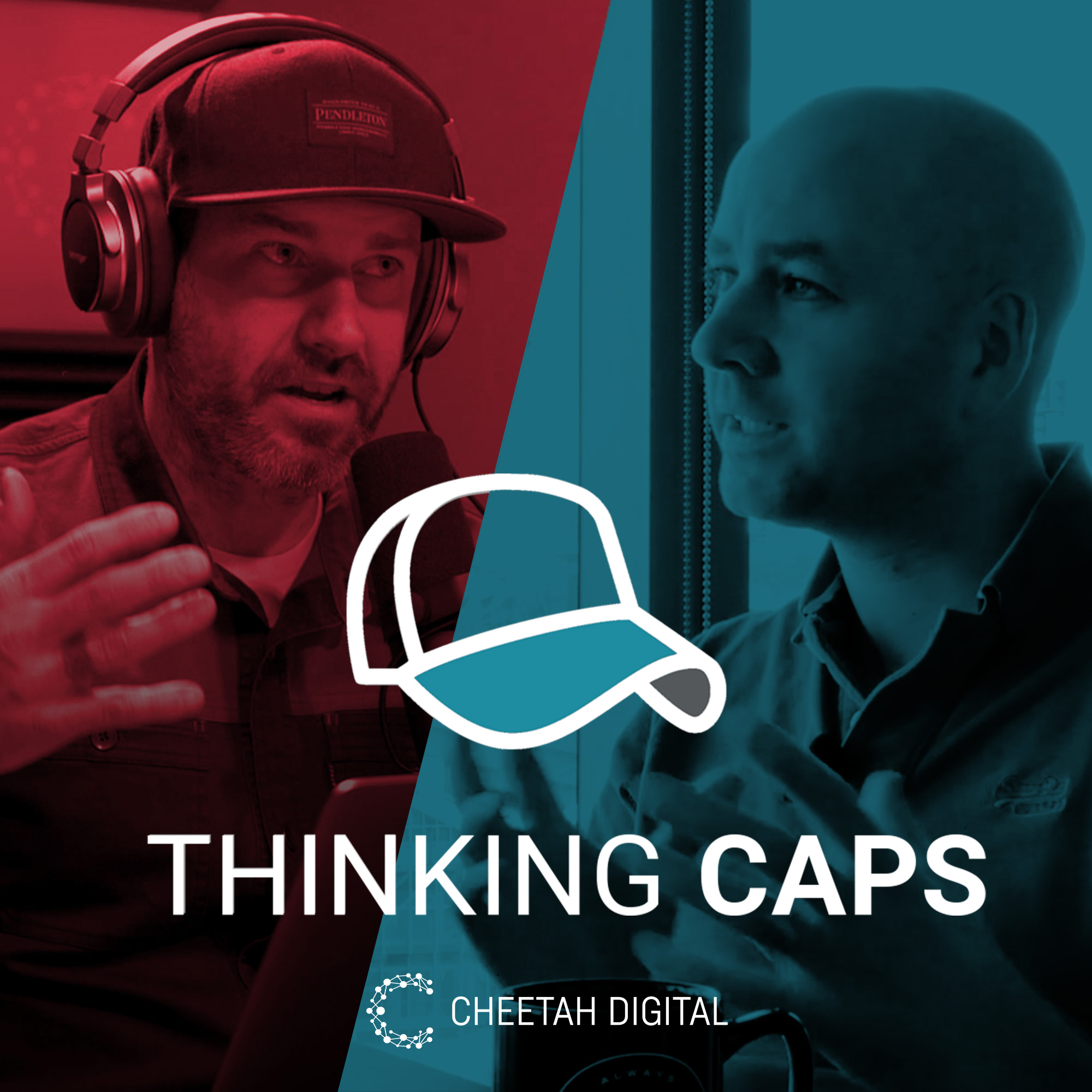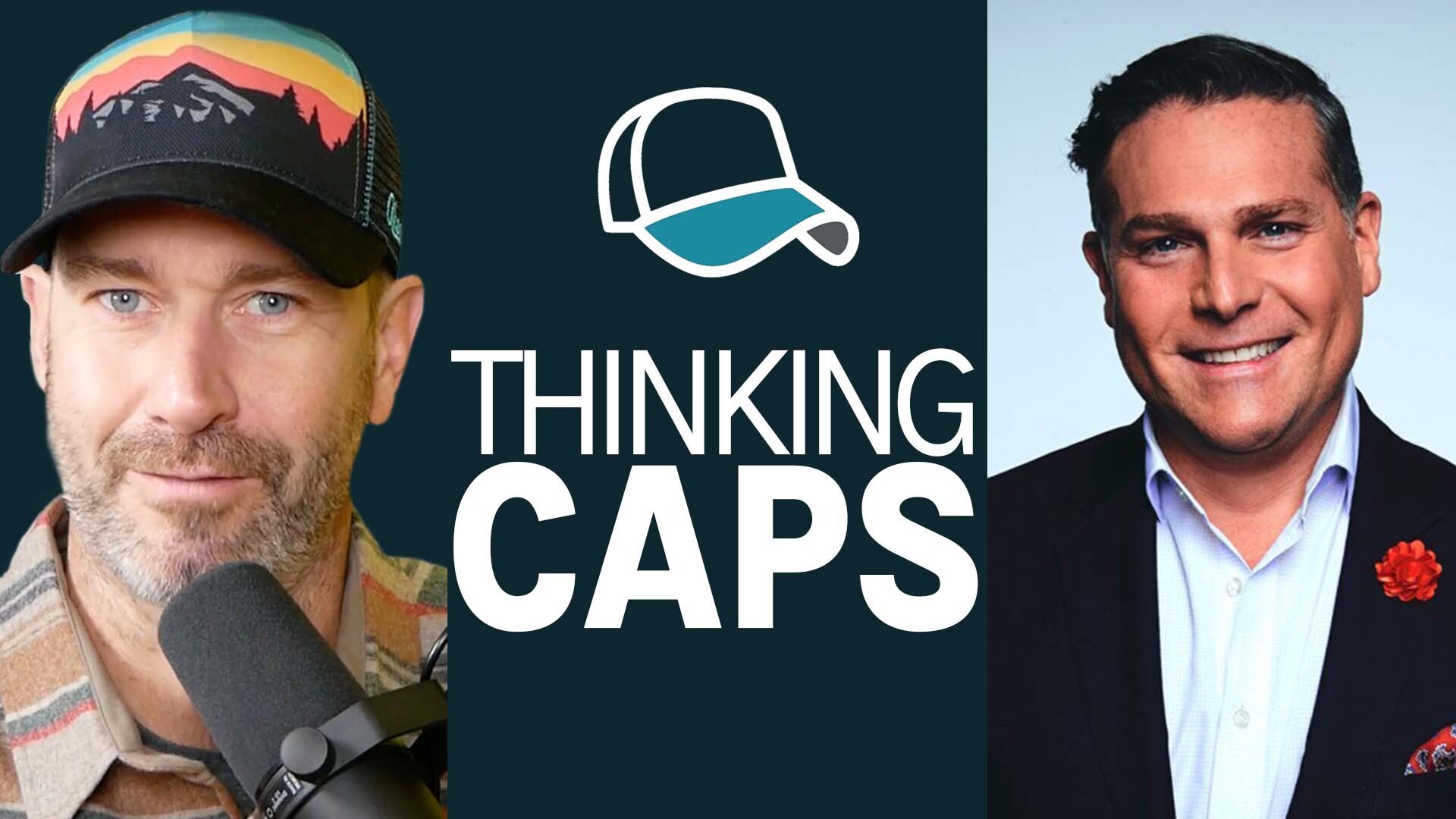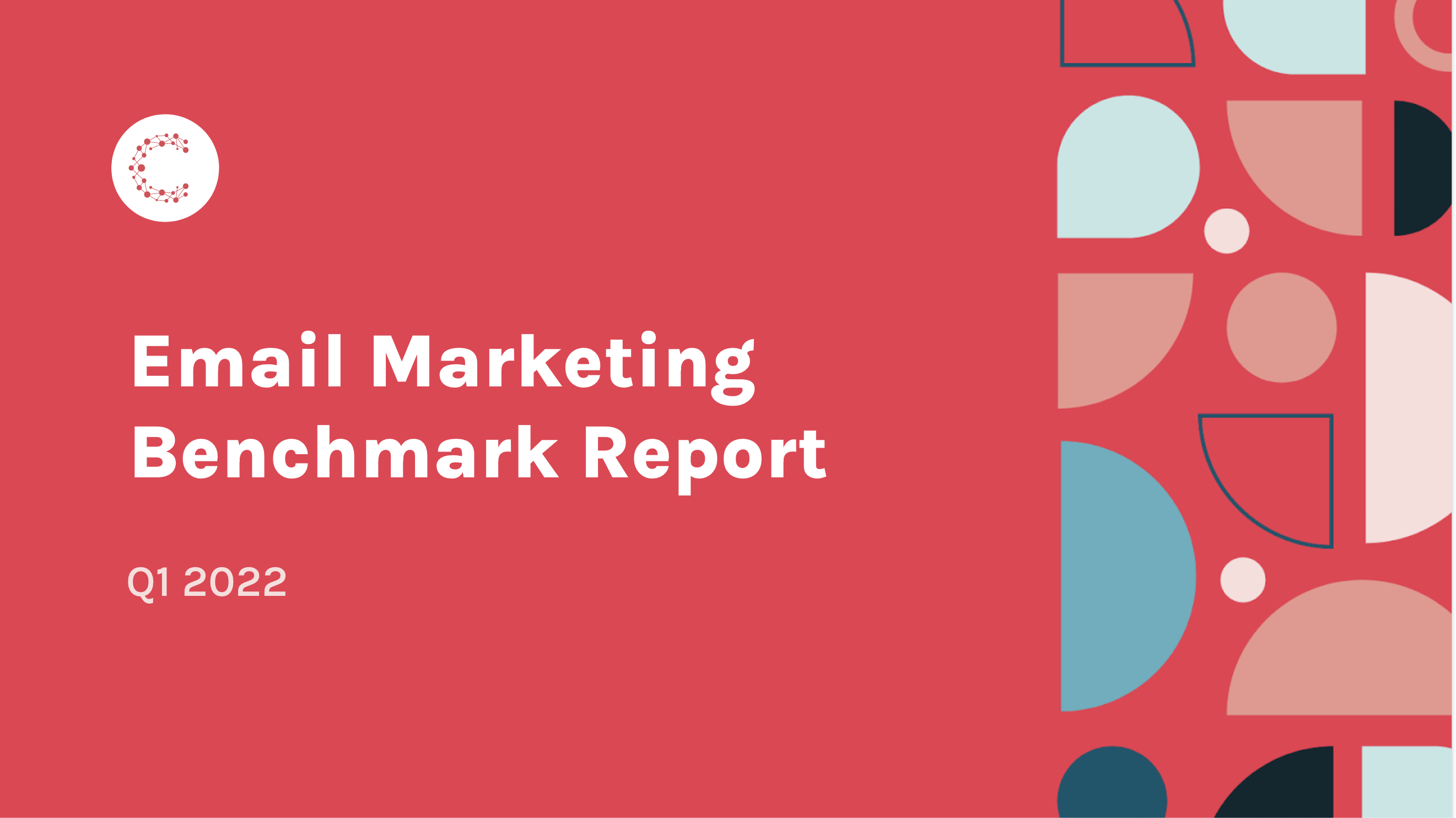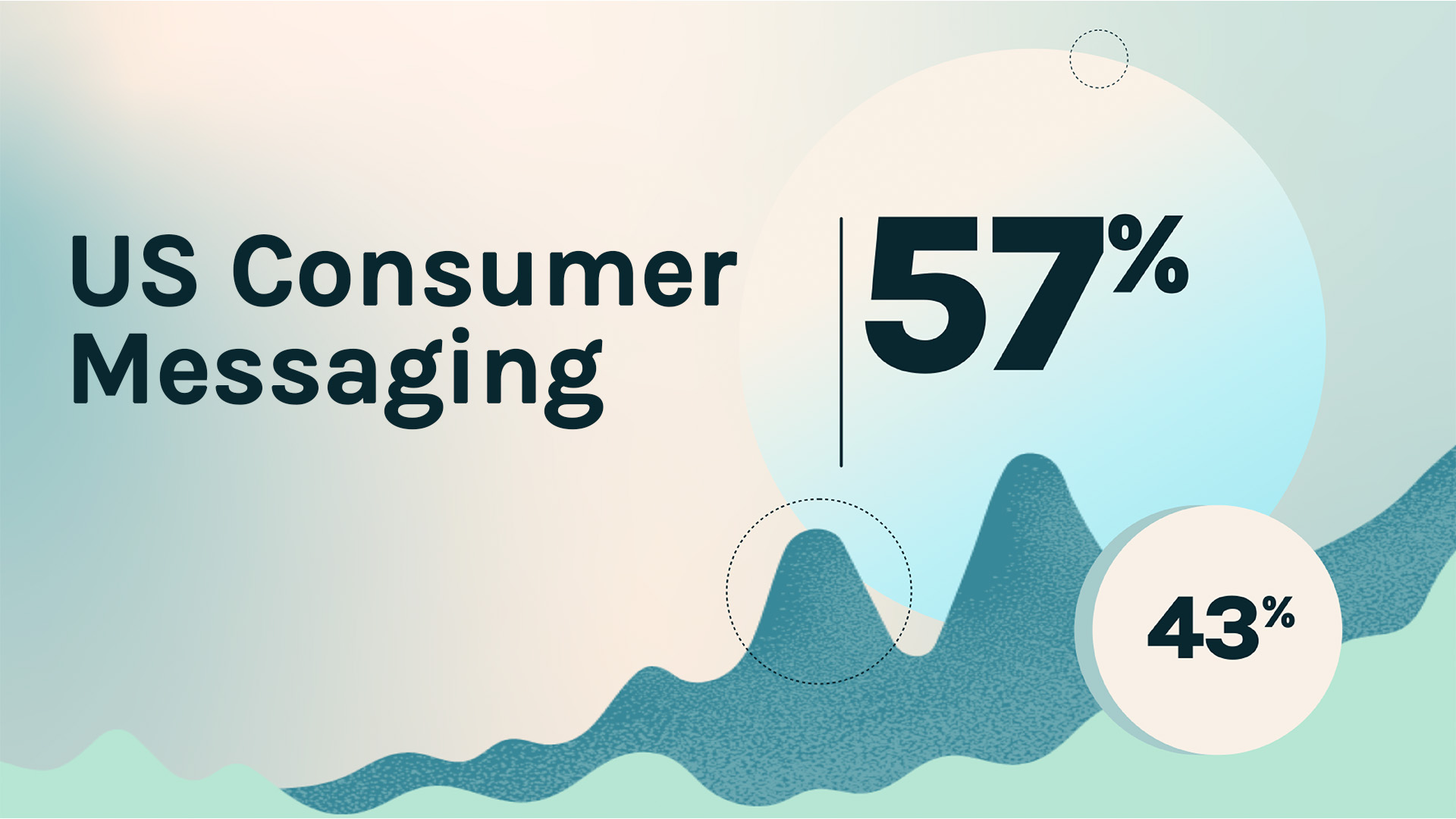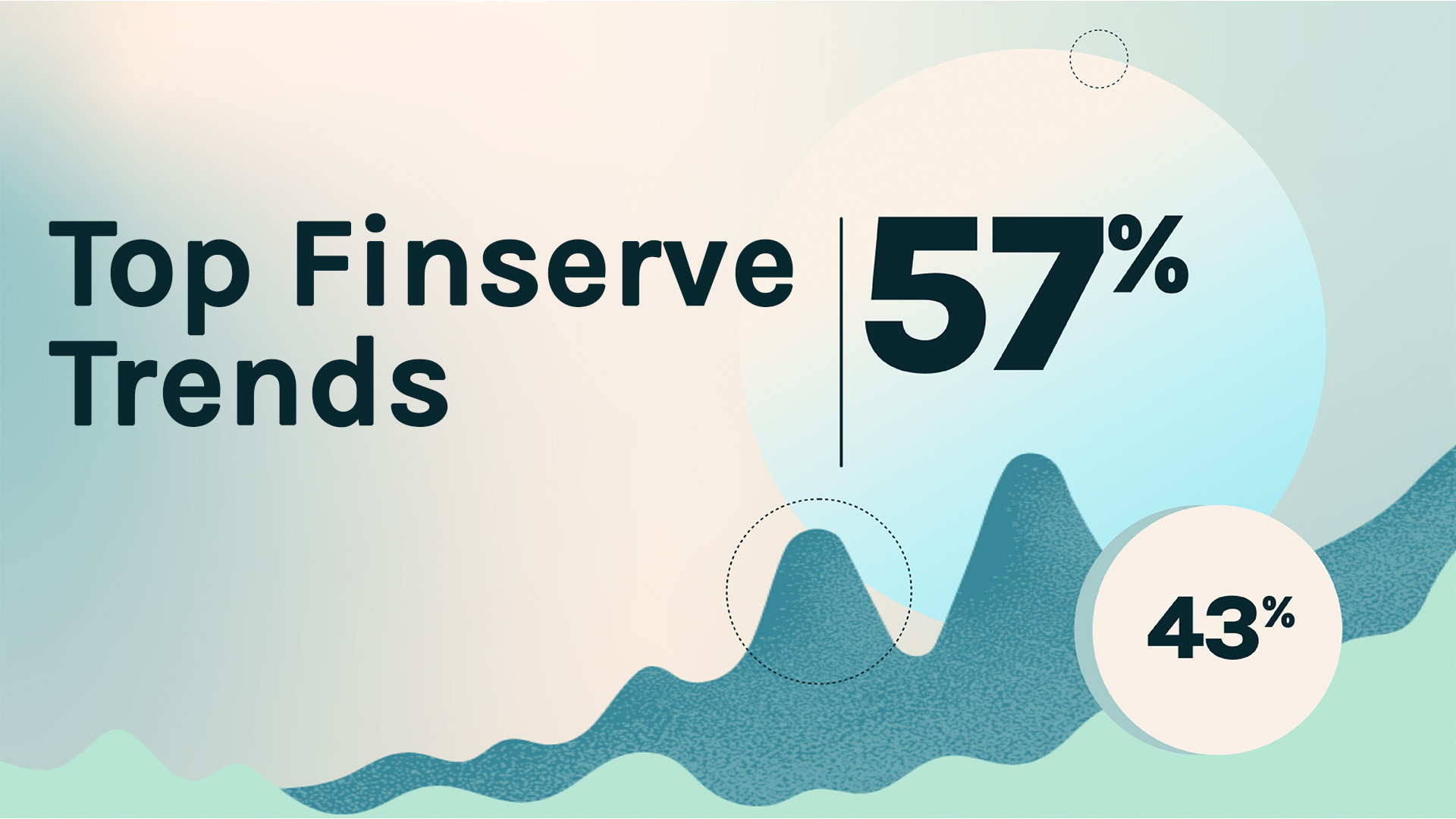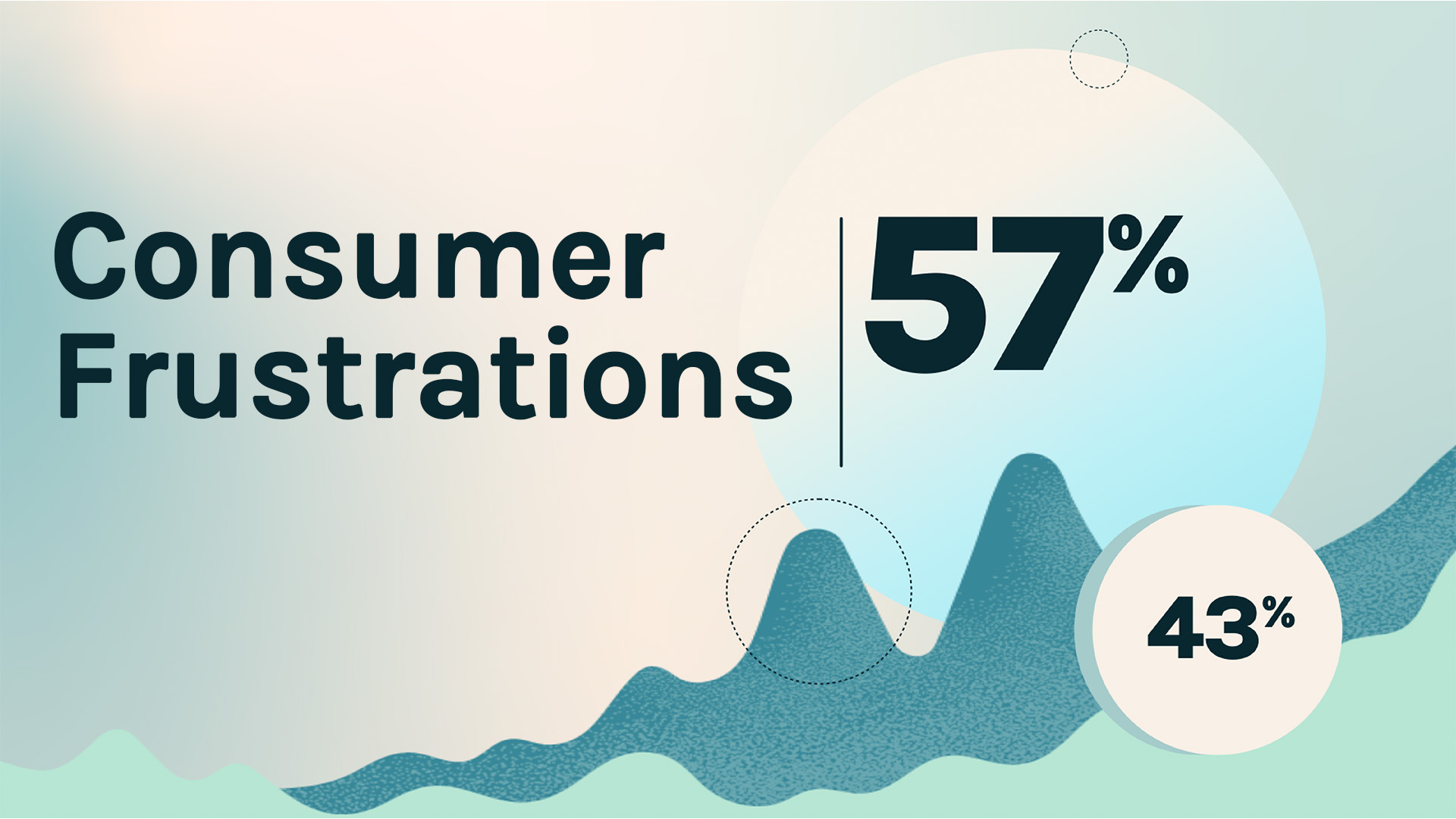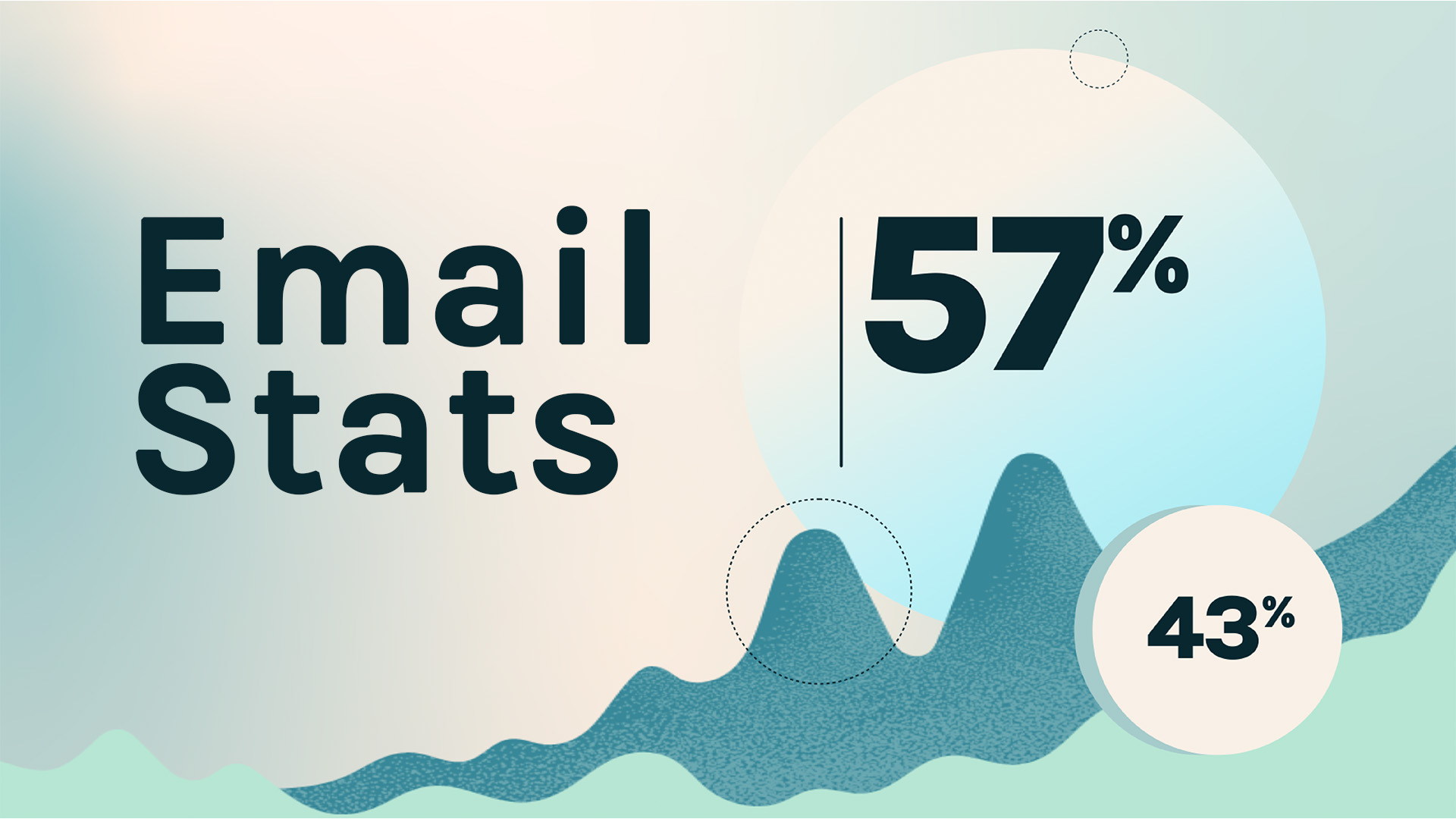Chris Muscutt, Head of MarTech at Pepsi Co, Talks Relationship Marketing Strategies
- 0.5
- 1
- 1.25
- 1.5
- 1.75
- 2
Tim Glomb: Welcome back to a special edition of Thinking Caps. I'm your host, Tim Glomb, VP of Content here at Cheetah Digital. I am in our beautiful WeWork office in London, York Road today and I have a very special guest, a long- time friend to the Cheetah family. In fact, going back to the Wayin days through experiences, platforms and multiple brands, Chris Muscutt. Chris, thanks for coming in, I appreciate you making the time.
Chris Muscutt: Wow, thank you.
Tim Glomb: Yeah.
Chris Muscutt: Thank you very much.
Tim Glomb: Well, why don't you give us a little 30 second on your background, your experience as a marketer so our audience knows who we're talking to, and I'll bring in the context of what we're going to talk about.
Chris Muscutt: Yeah, sure. No problem. It's interesting, my background starts off in air traffic control-
Tim Glomb: What?
Chris Muscutt: ...which is very much around marketing. Exactly, yeah. inaudible. I know. Yeah, so I started off trying to figure out how to pick up planes from radars-
Tim Glomb: That's cool.
Chris Muscutt: ...and then crosstalk them into a central data model so you can track them, work out where they're going, communicate with them. So actually unknowingly-
Tim Glomb: Wow.
Chris Muscutt: ...I was in the prerequisites of marketing back then.
Tim Glomb: Fully man, when you talk about digital, and we'll talk a little bit about omnichannel experience. You were truly mapping data in a whole different field.
Chris Muscutt: Yeah, yeah.
Tim Glomb: That's kind of cool.
Chris Muscutt: Yeah, it was. I mean, it was the time where we trying to get people to go from those little blocks of wood with the flights written on it.
Tim Glomb: Oh, my gosh.
Chris Muscutt: crosstalk to an electronic version.
Tim Glomb: Come on, you're not that old.
Chris Muscutt: Yeah, it was. That was it. It was really interesting, but yeah. I think fast forward, and coincidentally, I've just realized we're on York Road, we're on the eighth floor. That's where I start at Shell.
Tim Glomb: What?
Chris Muscutt: Yeah, this is the wing where I used to work, so that's pretty amazing. Yeah.
Tim Glomb: Oh, wow. That's funny, come full circle.
Chris Muscutt: Yeah, exactly.
Tim Glomb: All right. So tell us about Shell and then eventually PepsiCo, so keep going.
Chris Muscutt: Yeah. I started at Shell, just trying to help them to do their digital transformation. They were realizing they had a lot of legacy systems, especially for the websites, that typical we've got, I can't remember how many websites inaudible had, but they brought me into just try and look at whether we could re- platform. So went through, just trying to collect global needs on what we're going to do with channels. Slowly at the time I got brought into the brand team to kind of run all the channels, their development roadmaps. Then I went on to run within retail, trying to do digital services, the loyalty programs, communication, which where I came across Wayin at the time. Since then, fast forward, I'm now at PepsiCo doing a similar role, just trying to do the air traffic control, the roadmaps, how are we going to use marketing technology and as I try to say it, try and surprise and delight the consumers.
Tim Glomb: Yeah. All right. Well, great. Well, listen, you've known the technology. You're a huge fan of this zero- party data, first- party data plan, et cetera and maybe that's where we jump in. A lot of marketers right now, the buzzwords are out there. 1PD, zero- party data, all kinds of buzzwords. We believe that zero- party data is the future to building relationships. We believe at Cheetah that relationship marketing is what marketers need to know, right. They need to consider the journey from consumers to go from an unknown state, maybe they haven't bought or even heard your brand, to a known contact, to then an engaged customer. Then eventually, hopefully, a brand advocate and become your angelic voice, so to speak. With that said, talk to me about what you'll call 1PD and the value of it and what really should marketers be thinking about around these buzzwords?
Chris Muscutt: Yeah, I think it is trying to look at all the different signals that you can get from consumers, and some are stuff that people give up, but also there are some subtle things. I think, this death of the cookie, it is the buzzword, it's obviously third- party cookies that are crosstalk. Exactly.
Tim Glomb: Third- party cookies, that's very... And a lot of people don't understand that. First- party web cookies still alive. Technology's going to persist.
Chris Muscutt: Without that. I keep explaining that if first party cookies disappear, well, we've got their E- commerce, you can't log in.
Tim Glomb: Sure. Yeah.
Chris Muscutt: So I think it is that balance, first of all, what is first party data and there is quite a broad array of that. Then the next part is just trying to work out what you can do with that and I think the problem is everyone comes in with we need first party data, we need first name, last name and email and it's like," What are you going to use the last name for?" I can understand the first because you might send an email and it's just trying to prioritize what is the data that's really useful and what's your plan on trying to build that up? That's what I've been really trying to focus on, is just trying to develop those opportunities, to collect different types of data. I mean just the data about what content people have looked at. You can start building up some really useful things to try and improve customer's journeys.
Tim Glomb: Sure. So that's pretty standard behavioral data, right, they went from this page to that page. They opened our app two times this month, et cetera. Tying it to transactions is great too, if you know that they purchased, but you mentioned, strategic, maybe you don't need the last name. I'm going to skip ahead to something we already talked at the out, let's tackle it here. Do marketers collect too much information they don't need and the second part of that is, should they be thinking about what they're going to do with the data and signals that they're getting so that they can continue the journey, right. Asking to ask is useless but if you're saying," Hey, Tim, are you a skateboarder, or what do you do in your free time," now you can really personalize a journey for me with your brand and create those touch points. How important is it?
Chris Muscutt: I think it's critical. I do wonder whether the Amazon model of building that story about what success looks like at the beginning of the campaign, just doing that stretch target would probably help, but I think it's always the case of run a competition, collect the data, but then actually, how are you going to have that ongoing conversation with someone. I think that's the bit that's sometimes harder because it requires long term resource to try and run but it's the critical part of that without doubt.
Tim Glomb: You and I talked a little bit about progressive profiling, right. All right, first touch point, get a name, get an email, get a mobile, whatever it is. Now, start getting a little deeper into it. How important is it to continue collecting data and really get into some of the psychographic data, not just demographic and inaudible this is your name, but what do you care about, what do you do, et cetera?
Chris Muscutt: I think it's critical. I think more and more people are expecting brands to know something. They want to be surprised and delighted. It's one of the buzz terms we used to use at Shell, but it's true. Now, how many times have you had an experience with a particular brand you've kind of gone," Wow. I wasn't expecting that." I think that's where we're trying to get to. Every brand needs to do that and once one brand's done it, it becomes the norm.
Tim Glomb: Yep.
Chris Muscutt: Then you have to think of the next thing and I think that's the importance of this progressive data, is the only way you can get those opportunities is to understand where these different audiences are. You were talking about the skateboarding part. I mean, building up an understanding of people within there, it builds up huge opportunities to partner with other brands and start actually really stretching what that relationship with the brand means. I think that's challenging, but that's where people are expecting.
Tim Glomb: Yeah. I mean, look, when we talk about relationship marketing, which that's what we believe in, it's got to be relationship marketing, not your marketing plan forced on consumers. You got to build relationships. You know people by name, you know that he's a skateboarder, she's a ballet artist. She loves arts and crafts, whatever it is. But you talked about the resources to make all that happen. There's a lot of brands out there going, all right, let's just start collecting the data. You've inaudible some pretty big brands and done some pretty amazing things with our product and other products. How important is it to resource that stuff before you start, do you resource it heavy first or you just start collecting a data and activate it later? What would be your recommendation, somebody's dipping their toe in.
Chris Muscutt: I can see some people smiling who know me, but I mean, I think, the key to this is really trying to start off quite small, but with the right skills and capabilities. So there's that creative element, that's that data element, understanding the data and building it, and then someone who can actually plan and create those ongoing conversations across channels. So having that really small team perhaps trial it out with a few different markets, brands, but that's the key is having that team that can work together.
Tim Glomb: Yep.
Chris Muscutt: Like a real big, no advocate of working in agile ways and I think the idea of the team is there for a purpose to actually build something. I think that allows people to start crossing over between their comfort zones and testing out. Then you've got a team that really understand the tools, they can step in and help each other. I think that's where brands should be starting off with, is trying to actually build something small, something very organic, that people can share all the successes, get excited about to see the results. I think the problem is, is sometimes it looks like such a mountain to get up that people give up before they start because you just say it's been too hard.
Tim Glomb: Oh, man. Well, we have a great case study with American Airlines. I sat with Erin Lomers over there where they did just that. They knew they wanted to collect zero party data. They knew they wanted to personalize offers to business or vacation travelers and they put it all on us. It was a very short term, quick one. We lifted revenue for them significantly and now she's a champion inside a giant juggernaut like American Airlines and try and make that. So start small, just get a quick win champion it. Let's talk a little bit about the value exchange here, right, because we're talking about the techniques and the high level, but you mentioned surveys or sweepstakes or something, and you've done tons of these across Shell and even today, Walkers Crisps, Ghostbusters movies, PepsiCo's using our platform to do some of these things. How do you view that, what's in it for me, consumer point of view? How important is that to you to get that right?
Chris Muscutt: I think that's key. I think, everyone's wanting something more from their relationship. I think if you don't think about that up front doing a one off competition is one thing, but people forget about it. So actually it's thinking about that ongoing relationship. You look at some big brands, with Nike constantly trying to get people in, you think Apple with the exclusive access to certain content and products. But I think it's that, what are you going to do? Why does that customer feel confident to give data to you? What's in it for them.
Tim Glomb: Yep.
Chris Muscutt: The trust of what you're going to do with it is the other thing. Obviously, seen a lot of lost data, which has caused huge problems. So I think what is that sell to me? Competition's an easy one because you're basically saying here's a prize, you're going to get it, but will they able to subscribe, as soon as they don't get value, if they get reminded, will they unsubscribe? So what are you going to do? It doesn't have to be always be prizes. It can be just some fun. I think that's what I always am really keen to look at before we start things is just trying to concentrate. If I was that consumer, why would I give up this data?
Tim Glomb: That's fair. Look, you got to put yourself in an empathetic seat for the consumer and say," Yes, what's the value exchange for me." I also think a huge part of it is when you ask for data, whether it's in your app or on your website or wherever you're collecting that, if it's a sweepstakes or a survey, you have to react personalized in real time. We talked, we have some great brands here at Cheetah that are seeing upwards over 70% open rates on email and giant, almost 50% engagement rates on SMS, when instantly after they fill out the form of the survey of the sweeps and click submit, they get something back in the channel, right. SMS or email and that is where the conversation started. That's where you asked for something, they gave it to you and you followed up with something related to it. That's key. If you're thinking about doing this, you have to figure out how to do that real time. Don't get 100,000 or we'll talk Ghostbusters. You did a campaign where you got 1. 5 million entries. You don't wait 30 days later and then blast them all with an email campaign. They're going to forget about it. You need to be real time.
Chris Muscutt: Yes. inaudible.
Tim Glomb: Okay. So we've established value exchange. Give to get, you got to give something to get the information. PepsiCo is a giant brand. It's a global brand and you have many amazing sub brands under it. Lays, Walkers Crisps here in the UK Pepsi itself, Rockstar energy drink, who I've worked with for years. Great brand. How should marketers be thinking, enterprise marketers, thinking about the activating that data. Let's say there is a competition with Walkers Crisps. How do you introduce the other brands and how do you share that data from a global perspective as a marketer to build these unique journeys cross brand?
Chris Muscutt: Yeah. This is a real challenge because obviously in most big organizations, the brands are very siloed. So it's really trying to build up kind of what's in it for the other brand. That's the challenge. I think, even coming from Shell, very similar story, but I always talk about starting off with kind of the offers bank, what are kind of the bits of content that you want to do and where are the opportunities that they can be cross shed? You're not going to do Lays and Doritos, perhaps not on the site because they're similar products, but you would be able to do Pepsi and Doritos or Walkers. So it's trying to balance that, but trying to get the different brands to talk to each other. The technology's there, it's really just around almost those rules and what content's going to be presented. I think that's often the biggest hurdle. Then it's experimenting. I mean, can you do it in your really small audiences just to show what are the kind of traffic and people engagement. I think that's the key to it.
Tim Glomb: Well, the experiment we talked about this before we started shooting the Salling Group, large department store and grocer in Denmark. They are actually identifying high value customers that are highly engaged in their app, sending them experiences where they're like," Hey, what do you want the spring fashion to be like this year? Is it pink or greens or button downs or sweaters." And focus group. Do you believe in that theory too, of experimenting and using product research through these surveys to then inform the marketing plan?
Chris Muscutt: Yeah, definitely. I mean, who's better to tell you about your consumer than your consumer.
Tim Glomb: Right.
Chris Muscutt: inaudible so definitely, but it is trying to get the right ways to interact with them. Do you have popup surveys on the website? What's the kind of thing, and I think there is a balance on how you get that data back, especially with a brand like PepsiCo, where the retailers are, obviously, having that kind of transactional that conversation. So I think it's a bit challenging, but without doubt, in terms of getting some feedback from the consumers, without doubt. I mean, there's also so much data. Sometimes people find it hard to find that data in the data lakes that we have. I mean, you think about, just looking at cross brand websites, just trying to join that data together, to find out if someone has been going across them. It's getting easier, but that's still one effort.
Tim Glomb: All right. Well, let's dig into that, right, cause underneath the data are these data lakes and another buzzword, one of the biggest buzzword the last few years in my opinion, I don't know if you agree, CDP, the customer data platform, right. Is it a real buzzword? What does it really mean? How do you view that, as a data guide, inaudible starting to map out FAA and airline data all the way to marketing and persona data and customer data, what's your view on a customer data platform? What's that environment supposed to look like?
Chris Muscutt: Yeah. It's interesting because since CDPs come out, big data seems to have disappeared.
Tim Glomb: Oh, yeah, right remember that? You need big data.
Chris Muscutt: I used to get so angry about big data that I've got to walk out of a meeting if someone said it, because it basically meant that someone didn't really know crosstalk. But yeah, I think with the CDP, it's obviously the buzzword at the moment, but I think the key to this is the fact that we are now proactively trying to join data sets. We're understanding that we don't have that view. So I think that's a good thing, but I think it's not going to join every set of data. You've got to prioritize, otherwise you'd be spending a fortune, but it's looking at those priorities. I think, when you look across the attract, engage, retain kind of model, you're always going to focus initially on the attract, but it's as you going down that funnel... I love the idea of the fact that you can now start suppressing. Don't target people on paid if you've got them already in the ecosystem. I think, the idea around that is great. You can do some of that already without a CDP, but obviously, I think the focus now everyone's talking about this is the end goal. It's not going to be all the things we talked about before, you're going to need to be planning what the engagement is. You're going to be having to run experiences, and then how do you circulate that data and keep it live. I think, it's a healthy challenge, but I think this new hype has got everyone focused on it.
Tim Glomb: I will say Cheetah Digital, I'm proud to announce, we are a CDP certified full CDP from the CDP Institute. Not a lot, check that box. You should check it out. If you're in the CDP RFP process or we can throw another acronym at you, ASAP. Okay, cool. Agreed. Big data. Know the right data, yes, and have it in a platform that they can use it. In fact, we're proud to announce that we are a CDP certified platform from the CDP Institute and it's very tough to get that. One of the things I like about our platform, you'd appreciate this being a Cheetah experience is a customer for a long time, is you can dynamically change and experience, when we say the word experience, maybe it's a survey or form, if your data is in our platform. So essentially change the journey. You and I can get different question sets because we already have some information. If they know I'm a skateboarder, they might take a left on a survey or competition or sweepstakes form and ask me something around another activity. So it's really important, I think, not to think in CDP, but thinking how is your data actionable, how's it agile and how's it enhancing that experience. Let's talk a little bit of the back end because marketers they got to do this stuff. It's tough to do. What would you like to see improved in the MarTech landscape of content syndication, content creation because that can be an expensive task for brands like PepsiCo and even a single brand. What are some of the improvements you'd like to see in that world?
Chris Muscutt: Yeah. I've been talking about this a lot, is the idea of the different actors in the different tool sets. I think, at the moment, right up the front, looking at the data, trying to surface it all the way through to the creative side. I think the gap at the moment is I think a lot of, kind of the traditional business side, aren't comfortable going into the tool. So I think that's a bridge. I think it barrier we've got to inaudible overcome, but I think it's how do we get people to start being comfortable to experiment. So that's one challenge I've got. The other thing is obviously the visualization of the data. It's always a challenge. How do you get that, the right level for the different audiences. When you talk about going into online behavior data, doing it, it can get very complicated. So I think that high level summary trying to get that comfortable with the users is pretty key. I think the other part is how you kind of surface the right information alerts, things like that would be almost like going back to inaudible traffic control days, where it is, the control tower view that people can feel comfortable to delve in and activate and then act on something. I think that's kind of the ideal position we're working towards.
Tim Glomb: Yeah. I mean, at Cheetah Digital, we're trying to solve that platform with a single view of the customer and all your data and your insights right then and there. It's obviously difficult. We have a long way to go and so does everyone else, but marketers need that single view. What do we close on here? Let's pick a buzzword we haven't talked about or a topic we haven't talked about and close out on it. You have any ideas? What do you want to see changed in the world? What would make your life easier in your next, wherever you end up?
Chris Muscutt: Wow. inaudible.
Tim Glomb: How about personalization? I think that's a buzzword right now because I think a lot of people say they personalized." Hey, Tim. We have an email for you." Personalization. Do you think it's being done right at scale, not naming names, but you think we're really at the level where marketers are truly personalizing things yet?
Chris Muscutt: No, I think there is definitely room on here. I mean, you've got personalization, just making things relevant is one thing, then personalizing the journey. I think there is pockets of both but never all together. You think of the examples where perhaps you open up an email, the background is recognizing that you are from London or you are from New York. Those subtle things are kind of the entry point and then through to understanding where you are on the journey with that particular brand. I think those are the bits we're not always getting right, I think just as an industry. So I think that's definitely part. Do you call that personalization? Do you call that journey planning? I think, this is where the gaps come.
Tim Glomb: It could just be simply contextualized marketing at that point, if you're using a location based thing. Yeah, I don't know that it's personalized. Because hey, if I got an email today, I'm sitting in London, but I live in Denver. So is that personalized? Yeah.
Chris Muscutt: Inaudible.
Tim Glomb: No, it's a good thought. Yeah. We have a lot of way to go there. Well, look, this has been great. I really appreciate you sitting down to talk to me today. Follow Chris. Where can we follow you? LinkedIn?
Chris Muscutt: inaudible.
Tim Glomb: All right. Great. Great. All right, well-
Chris Muscutt: Well, thank you.
Tim Glomb: Again. Thanks for coming in. We appreciate you tuning in. We'll see you next time on the next episode of Thinking Caps.
Chris Muscutt: Thanks.
DESCRIPTION
Chris Muscutt is the Head of MarTech at Pepsi Co, as well as the former Chief Product Officer of MarTech at Shell, and a long-time customer of Cheetah Digital's Experiences product. Tim Glomb sits Chris down in a London WeWork to discuss some of his advice for those that are using marketing technology to power their relationship marketing strategies. Chris has a great perspective on zero- and first-party data uses buzzwords that are meaningless, and examples of how to build great customer engagement and harness that data across brands in a global portfolio.
Today's Host
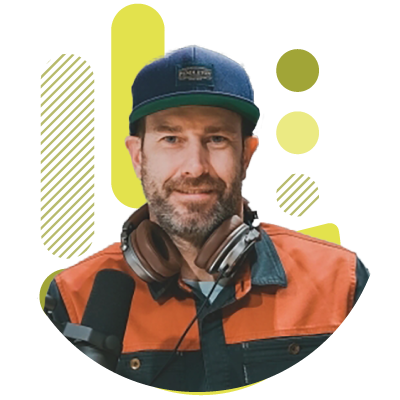
Tim Glomb
Today's Guests
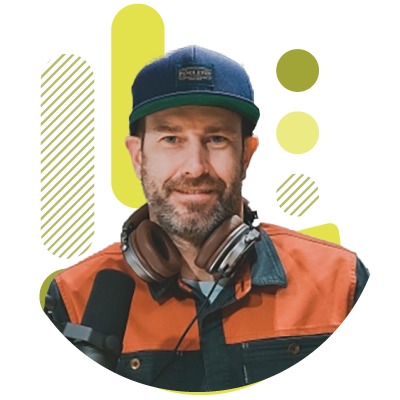
Tim Glomb
